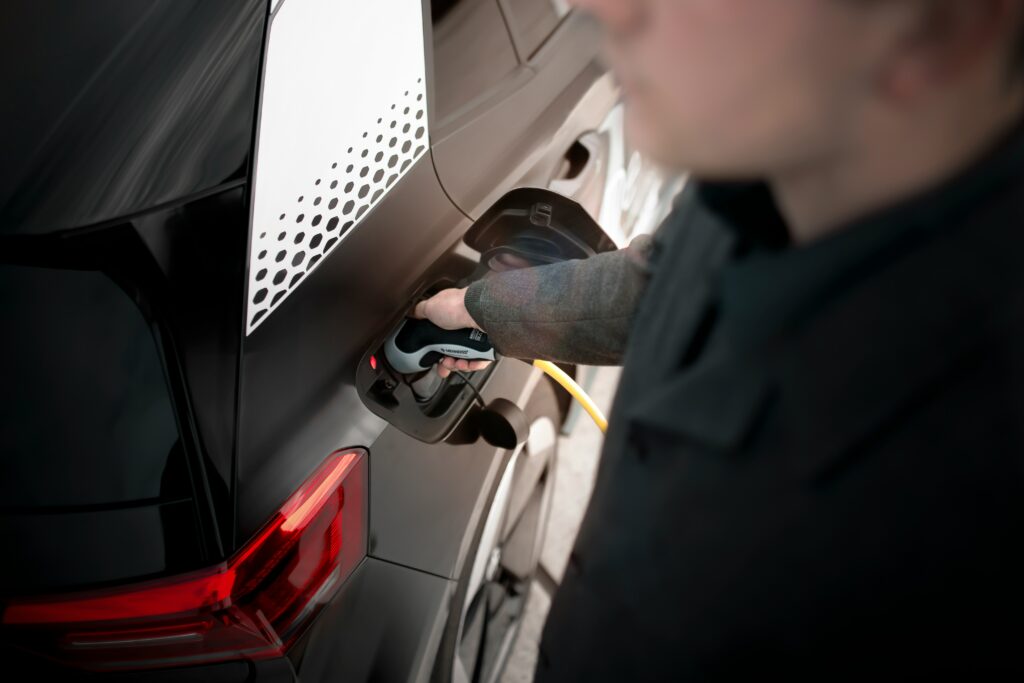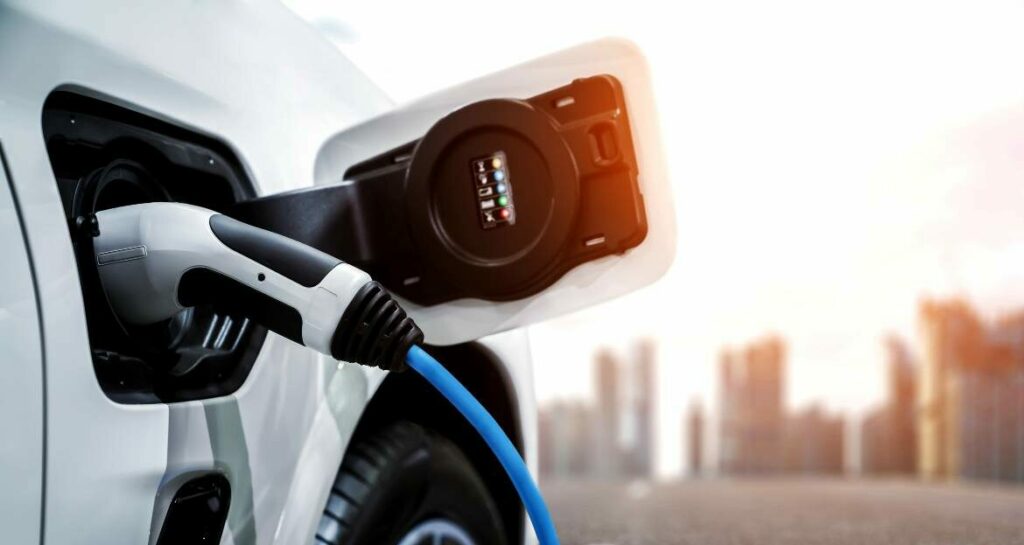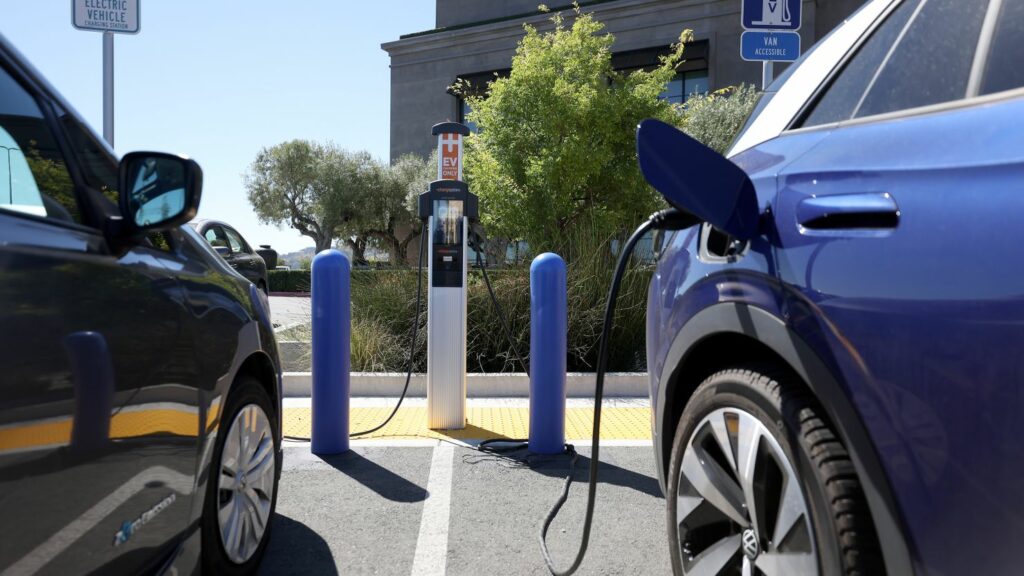The climate alarmist movement is divided between those who think relatively minor lifestyle changes will let us stop emitting planet-killing CO2 and those who want the revolution and want it now. To the former camp, electric cars are an important part of the solution. What a pity that like other kinds of alternative energy, they don’t work very well. By which we don’t mean they’re sluggish or hard to fuel. We mean a new study out of Australia says they emit more CO2 than gasoline vehicles. Et tu, Tesla?
More CO2? How can it be? These are “zero emissions” vehicles, right? Well, no. When they run they don’t give off much of this new-fangled “pollution”. But where does the power that charges their batteries come from? In Australia the answer is often coal.
Aha! cry the enthusiasts. Don’t blame the cars. If Australia would only switch from fossil fuels to, say, wind power all would be well (well, Australia, India, Indonesia, the Philippines and so on). Except of course for the problem of manufacturing wind turbines, siting them, then having to dispose of them after they've killed so many birds and bats that German wind producers want those stupid environmental laws relaxed so they can get on with building stuff and making money (see original German here). As we’ve noted before, solar has surprising costs as well.
Thus the real problem with electric cars isn’t Australian coal plants. It’s that the power has to come from somewhere and the devil as so often is in the details. Or, as Henry Hazlitt wrote nearly three-quarters of a century ago in his classic Economics in One Lesson: “the whole of economics… can be reduced to a single sentence. The art of economics consists in looking not merely at the immediate but at the longer effects of any act or policy; it consists in tracing the consequences of that policy not merely for one group but for all groups.”
It is as true for environmental measures as for any other attempt to get maximum benefit at minimum cost which is, of course, what humans famously do and what economists at least realize that they do. Including those lobbying government for favourable measures for their own industry, nicht wahr, wind turbine makers? And, as The Economist laments, the Chinese government, which has decided to “give priority to wind and solar projects that can generate power at the lowest prices”. Worse still, that government cut back its subsidies for electric cars and, for the first time ever, worldwide sales of the vehicles fell. It seems they don’t drive well on a level road. (Meanwhile one California state senator wants to declare nuclear energy “renewable” which would affect its legal status but not its own mix of pluses and minuses.)
Of course electric cars might still be a good idea if, all else being equal, they outperformed gasoline, diesel or other kinds. Including the steam cars that looked most promising early on like the fabled former world land speed record holding Stanley Steamer (aka “Flying Teapot) that hit a blistering 127 mph back in 1906. And there are lots of aspects to good performance including, in crowded cities with air quality problems, their capacity to move generation and its drawbacks somewhere else. But there is no free lunch; everything carries costs as well as benefits. And if the cost of electric cars relative to their benefits is unattractive because of how other cars work, they are not a good idea.
Shocking.
See Comments 
Shocking news about electric cars
11 Sep 2019 | News Roundup



As an engineer, I find something about that Australian ABMARC study very odd.
Hybrids use an internal combustion engine coupled to a generator to charge batteries on the vehicle that power an electric motor to propel the vehicle. The energy efficiency advantage over a direct internal combustion engine drive is that the engine can be sized for the average power needed by the vehicle instead of the peak power requirement, so a hybrid has an obvious large energy efficiency advantage over a plain internal combustion engine vehicle just because it can use a much smaller engine. No surprises there.
What doesn't make sense is that a modern stationary gas turbine power plant fueled by coal gasification has a thermodynamic efficiency on the order of 40% (combined-cycle plants can do over 50% with manufacturers claiming up to 60% although reality is usually less), whereas a typical modern gasoline-powered internal combustion engine has a thermodynamic efficiency only on the order of around 25%-30%. That study says the Australian coal-fired electrical grid is so horridly inefficient that it is actually worse than a small automobile engine. If that is true then Australia seriously needs to upgrade its grid power plants. Perhaps they could unplug the coal-fired plants and plug in many hundreds of thousands of Prius instead to power their grid generators?
I have my doubts.
Surely one of the many lessons learned from the industrial wind turbine incursion, which was sold to the public, using alarmist deception as the rationale, is that a proper cost/benefit analysis must be done before hand, especially if a government is deciding to use tax payers' money to subsidize such experiments.
At an individual level, a person is free to invest in whatever the market place provides...if it passes Federal Statutes for safety.
The power has to come from somewhere. Hardly surprising!
Even if, and this is a big if, EVs pollute more then gas cars they will, at the very least, shift the polutulion from very heavily populated cities to far less populated areas. This alone will cause a major reduction in air borne health issues.